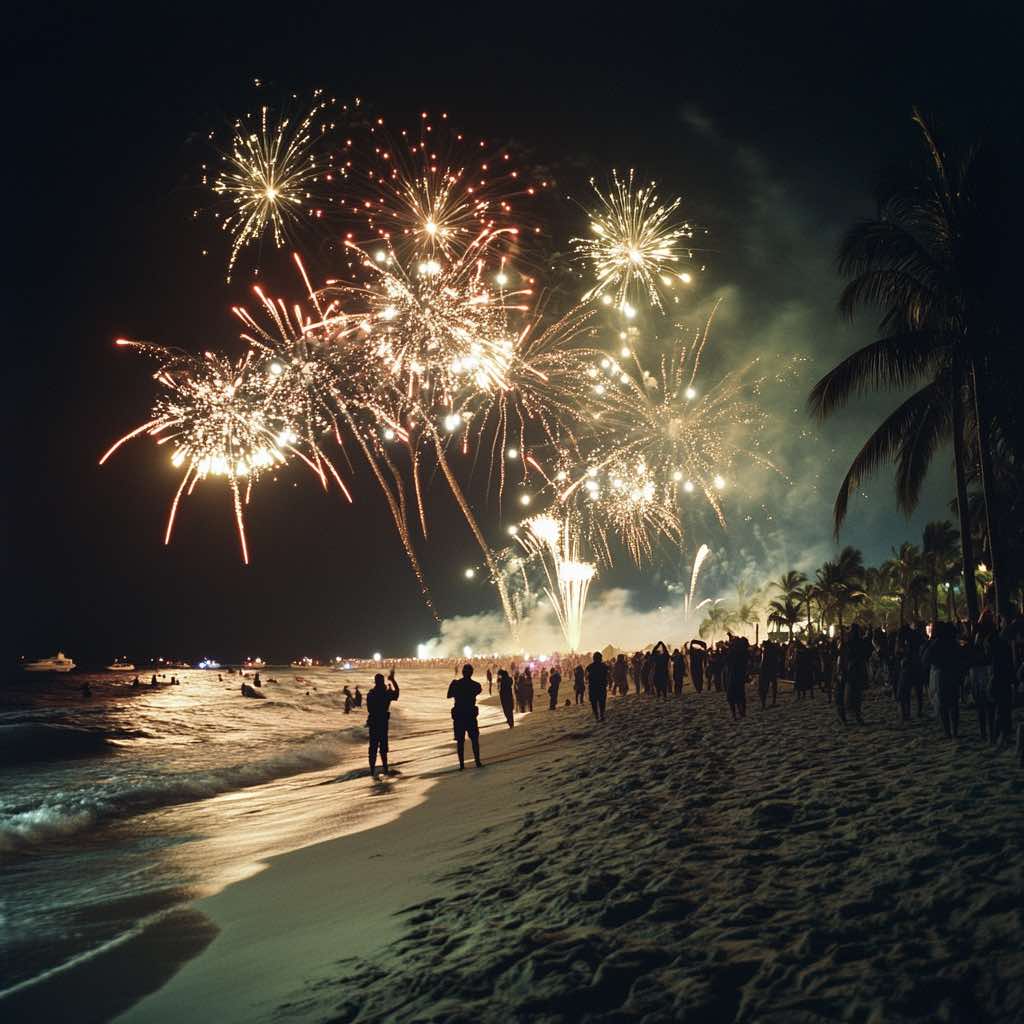New Year is a time for celebration, reflection, and looking forward, but when and how it's celebrated varies greatly across the globe. While many follow the Gregorian calendar and celebrate New Year's Eve on December 31st, different religions and cultures observe the start of the new year based on unique calendars and traditions.
Let’s take an inspiring journey through the diversity of New Year celebrations!
New Year in the Western World – December 31st
For most in the Western world, midnight on December 31st marks the start of a new year. Traditions include fireworks, countdowns, and festivities with loved ones. Cities like Sydney, New York, and London are renowned for their spectacular New Year’s celebrations that draw massive crowds. Toasting with champagne at midnight is a common ritual, often accompanied by resolutions for the year ahead.
Chinese New Year – The Lunar Calendar in Action
Chinese New Year, also known as the Spring Festival, falls between January 21st and February 20th, depending on the lunar cycles. It is one of the most important holidays in China and is celebrated with family feasts, red envelopes filled with money (hongbao), and vibrant dragon and lion dances. Each year is associated with an animal from the Chinese zodiac, adding a unique significance to the celebration.
Rosh Hashanah – The Jewish New Year
For the Jewish people, Rosh Hashanah marks the beginning of a new year according to the Hebrew calendar, usually occurring in September or October. The celebration is more reflective than festive and includes prayers, the sounding of the shofar (a ram’s horn), and meals with symbolic foods like apples dipped in honey to wish for a sweet year.
Diwali and the Hindu New Year
In many parts of India, the Hindu New Year coincides with Diwali, the festival of lights. This usually takes place in October or November and is celebrated by lighting oil lamps, decorating homes, and enjoying festive meals. Exact dates and traditions vary depending on the region and the Hindu calendar in use.
Islamic New Year – Hijri
The Islamic New Year, Hijri, marks the start of a new lunar month in the Islamic calendar and falls about 10–12 days earlier each year in the Gregorian calendar. The celebration is often subdued, focusing on prayer and reflection rather than grand festivities.
Unique New Year Traditions Around the World
-
Scotland: New Year, known as Hogmanay, is celebrated with ancient Celtic traditions, torchlight processions, and the singing of "Auld Lang Syne."
-
Japan: The Japanese New Year, Oshogatsu, involves temple visits, ritual cleaning, and eating toshikoshi-soba (long noodles for a long life).
- Ethiopia: In Ethiopia, the new year, Enkutatash, follows the Ethiopian calendar and is celebrated in September with flowers and singing.
New Year – A Symbol of Hope and Renewal
No matter where or when New Year is celebrated, it’s a universal moment to honor the cycles of life and set intentions for the future. By experiencing different New Year traditions, we can appreciate the cultural richness of the world and be reminded that we all, regardless of faith or background, share the same desire to welcome a brighter, better year.
Why not celebrate your next New Year in a new destination? With Globefellas, you can explore the world and gain a deeper understanding of its incredible diversity. Why settle for one tradition when there are so many to discover? 🌍✨



